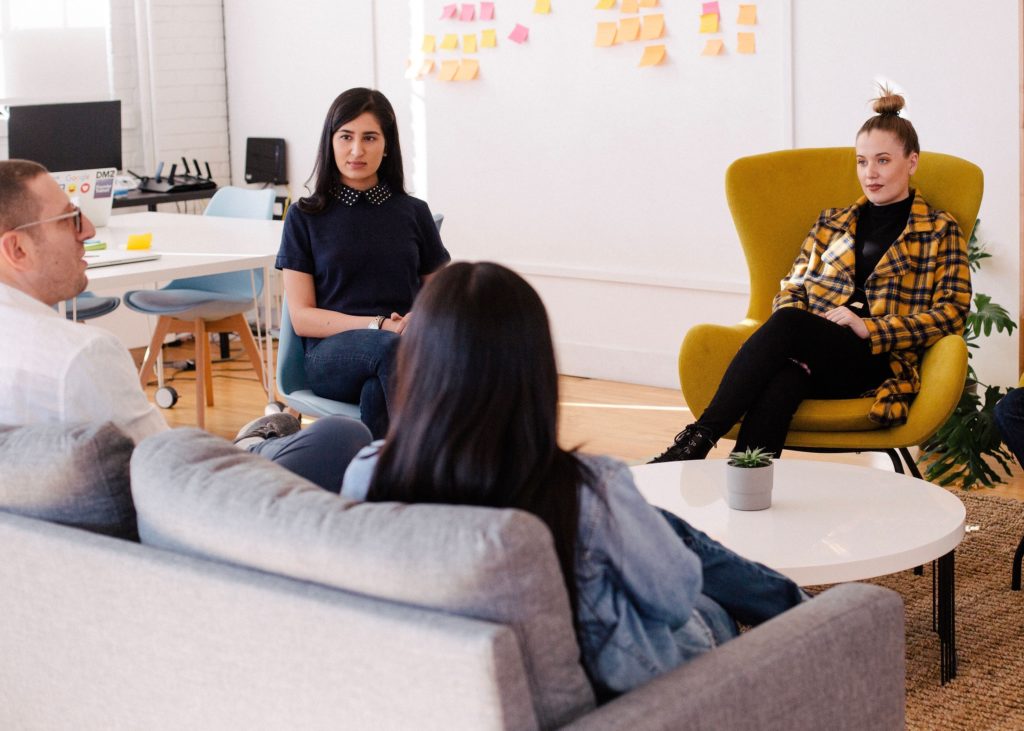What I Learned From Several Extremely Awkward Job Interviews (& One Really Great One)

I have gone on many job interviews in my life. This summer, as I search seriously for post-graduation employment, I have gone on many, many more. I have always felt decently good at being interviewed: I’m a friendly person, I’m reasonably articulate, and I often read articles for professional tips. Prior to this job search, I felt certain that if I could only get past the paper-wall of cover letters and resumes, I could nail an interview and get a job.
So far in this job search, though, I haven’t been nailing interviews. I don’t say this just because I haven’t gotten hired, but because the interviews themselves have been uncomfortable in a new way. On a recent occasion, I went to an interview that required a short presentation before two members of the team. I happily gave my presentation, which I had prepared beforehand. But when I finished, the team members simply stared at me. Following a long pause, one of them eventually asked me if I wanted to sit down. The rest of the interview continued similarly. I felt like I was being my genuine self, but the interviewers regarded me with vague suspicion, and our communication felt stilted and disjointed.
After this interview, and then another one that felt nearly as awkward, I was left wondering what had happened. I thought about all of my actions at the interviews, and I identified some things I could’ve done better. I felt a lot of shame. Having been someone who has read interview tips and articles about how to succeed in professional settings, I felt I must have done something terribly wrong. I thought I needed to reassess my own personality and professional identity — am I awkward? Am I bad at answering questions? Am I unqualified for this job? Am I worthy of being hired? How will I make an income?
My thoughts spiraled to a dark, extreme place, and I started to feel dread about even applying to jobs, let alone meeting potential employers. I did muster up the courage to apply to more jobs, but I carried these anxieties into my next interview. I was prepared to be disappointed in myself, but this job was something I really wanted and I tried to be optimistic about it. Lo and behold, this interview went completely differently: the interviewers and I laughed together, exchanged stories, and realized we had mutual acquaintances. I liked the team and the organization. The interview was seamless and almost…fun?
After this “good” interview, I tried to think about why it had gone so much better than the others. I thought those other team members and jobs were probably not the best fit for me and my interests. These realizations were all fine: I took time to think about my interview skills and what I really wanted in a job. But I also realized that there was a profound difference in the way the interviewers at this most recent organization treated me from the start. They welcomed me into the space, hosted me there, and talked to me with authority but also kindness. Unlike the other organizations, where I’d felt like an unwelcome interloper, these people made me feel like they were actively interested in finding out if I had the skills and qualities for the job. They guided me through the process because, after all, that was their role in the interview.
Reflecting on these two interview experiences made me realize that although it’s always wise to try to improve our professional skills, the urge to internalize awkward and uncomfortable interviews is self-destructive. The job search is already difficult; studies have shown a correlation between prolonged job searches and depression. We also live in a society where self-worth is largely based on things like productivity, earning potential, and job status. This makes self-blame in the face of a challenging (read: depressing) job search all the easier and all the more detrimental.
We are in a vulnerable position as we attend interviews: we are being judged and evaluated by one or more strangers and at stake is our income, financial security, and even self-esteem. Yet it is important to remember that we are not the only people in the room. We are part of a conversation. As candidates, we are trying to get a feel for the workplace and the job. Although we are entering their space (and wondering if we will be allowed to return for the long-term), we need to be hosted. So, when interviews go south — and sometimes they do — it may not always be our fault as the candidate. The interviewer has their role as well, and sometimes maybe they are off their game, too.
I have a more holistic approach to interviews now. I, too, am assessing potential employers and places of work and not blaming myself for bad professional fits. When I am faced with the future task of interviewing candidates, I will also try to keep in mind that interviewing is a two-way street.
Alice is a Philadelphia-based writer, singer, and personal finance fanatic.
Image via Unsplash
Like this story? Follow The Financial Diet on Facebook, Instagram, and Twitter for daily tips and inspiration, and sign up for our email newsletter here.




